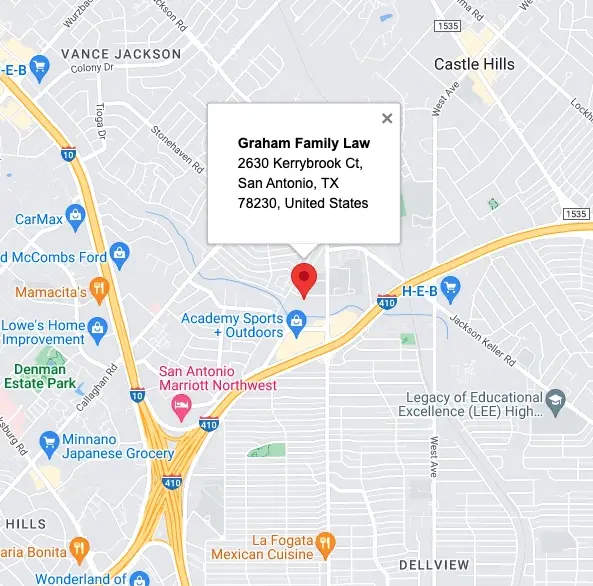A temporary protective order is a profoundly serious action to take in a divorce and it is important to be informed of what a protective order does and how it affects the parties and children during a divorce. A protective order is a civil court order, and it can be obtained to prevent violence or harm to you, your children or any other party that seeks protection. In order to obtain a protective order in Texas, a party must have committed any of the following acts against the applicant:
- An act that is intended to physically harm another family or household member
- A serious threat of physical harm to a family or household member
- The abuse of a child
For a protective order to be issued, you must prove that there is clear and present danger of family violence, sexual assault, or other harm. You must show that violence has occurred in the past and that you feel it is likely that violence will continue in the future if the protective order is not issued. The party applying for a protective order will file an application for a protective order and request that the Judge issue a temporary protective order. This can be done with a private attorney’s office or with the local District Attorney’s office. You will have to provide an affidavit that states detailed facts that demonstrate the need for the order. If the Judge grants your request for a protective order, the Judge will issue a temporary protective order and will also schedule another hearing. The other party will then be served with the protective order and will be ordered to appear in court. At the time of the hearing, the Judge will allow the other party to tell his side of the story. At the end of the hearing, the Judge will either grant a final protective order or deny the protective order. If the Judge denies the request for a protective order, the protective order will expire after a period of 20 days. If the Judge grants the protective order, they will also order how long the protective order will be in place. Most protective orders are in place for a period of 2 years; however, a protective order can be granted for a lifetime. The protective order will contain an expiration date. If the protective order is expired and you still need protection, you can always reapply for another one.
A protective order is designated to protect a party from family violence, threats or harassment. Unlike a restraining order, a temporary protective order can order that the other party vacate the residence to protect a party from any further acts of violence, threats or harassment. In addition to not being allowed to go near a party’s residence, it can also prohibit a party from going near a workplace, school or daycare of any party that is protected under the order. In addition, if a protective order is issued, that party is prohibited from carrying a gun, even with a license.
If the protective order includes the children, it can preclude all periods of possession, including, electronic communication with the children, such as video or telephone access. If the protective order does allow for possession, the dates, times and details of the possession will be outlined in the protective order. If a protective order restrains a person from contacting the other party, there are no exceptions to this. Therefore, if you want to see or talk to your children, you cannot contact the parent. The court may designate an alternate person or agency to facilitate possession between you and your children. Be sure to inform the agency or attorney assisting you with obtaining a protective order if you feel that the children or any other parties should be included in the protective order or not. The Court can order that a party is protected under the order, but that the children are not. In addition, in a protective order the Judge can provide orders for a party to attend anger management classes, order drug testing, order substance abuse treatment program, etc.
If you, your children or any other member of your family or household has been a victim of abuse or harassment, please do not wait and seek the assistance of the local District Attorney’s Office or a private attorney to see if you qualify for a protective order. In addition, make sure you do the following to document any incidents of abuse:
- Call the police, make a report and press criminal charges
- Do not delay and apply right after the incident happened. If you wait, it may reduce your chances of getting a protective order, because the threat of immediate danger has now passed.
- Make sure you keep documentation regarding the incidents of abuse, such as photographs, voice messages, texts, and emails. The more details you provide, the stronger your case is and the more likely you are to get a protective order
A protective order is profoundly serious and if a protective order is violated, the violator may be fined and may go to jail. Violating a protective order can create serious legal problems, can cause you to lose all rights to your children and can leave a person with a criminal background. If a party violates a protective order multiple times, it can result in felony charges and the requirement of an ankle monitor.
While an attorney can advise you of the need for a protective order, in the end, only you fully know all the facts of your situation and whether a protective order would benefit or harm you. If you are in fear for the safety or yourself or your children due to domestic violence, seek the advice of an attorney as soon as possible. You can always drop the protective order if you no longer need it, but not obtaining one, can cost you your life.


